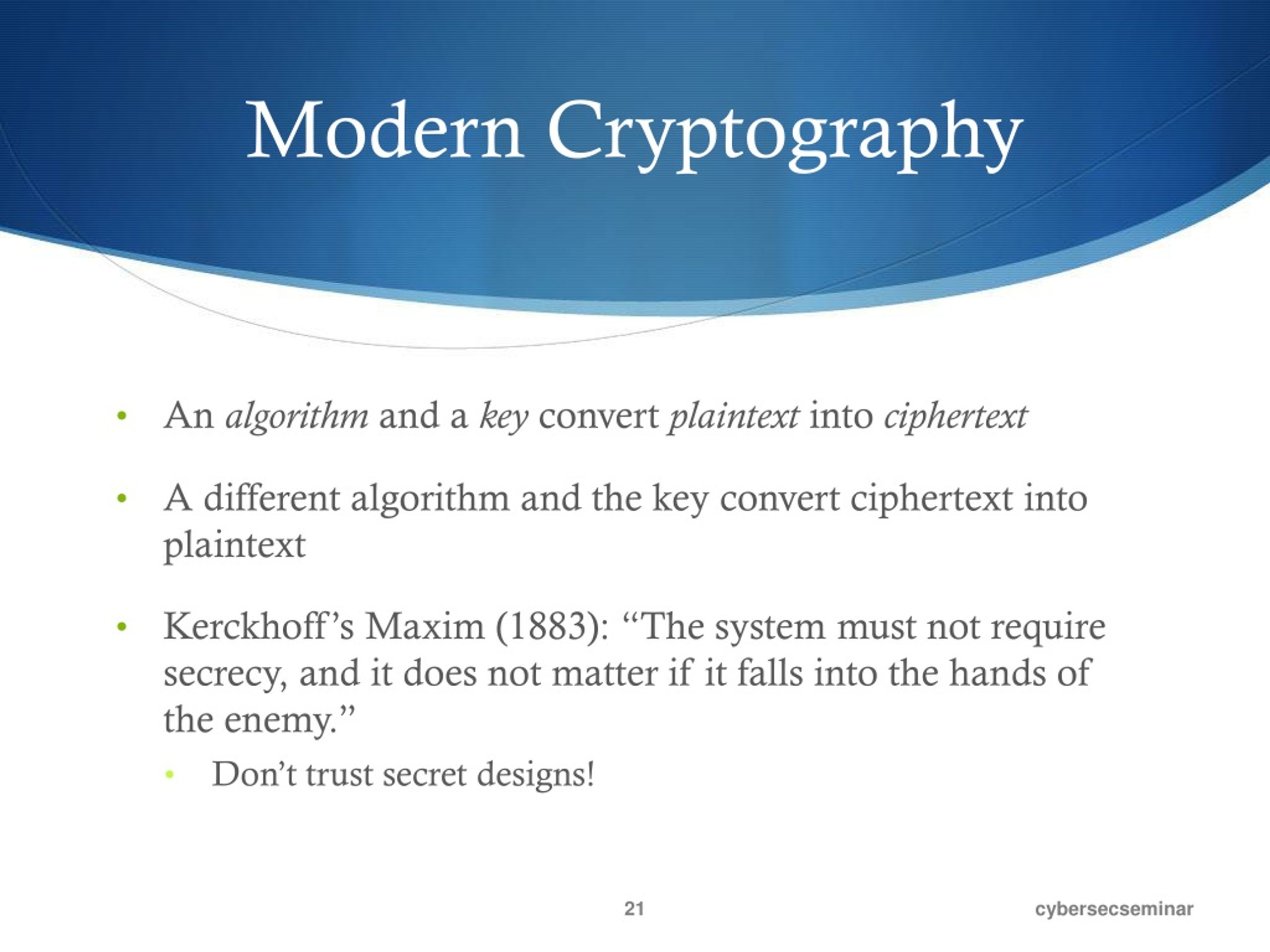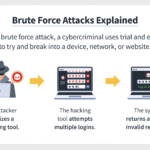The digital age is characterized by a plethora of innovations, a majority of which pivot on the use of cryptography. This often overlooked element is, in many ways, the unsung hero of modern civilization. Its importance is frequently obscured by the more glamorous aspects of technology, yet cryptography plays a pivotal role in ensuring the security and integrity of information in an increasingly interconnected world.
At its core, cryptography is the art and science of encoding messages, rendering them comprehensible solely to intended recipients. This ancient practice, rooted in the annals of history, extends back to the days of the Caesar cipher, and has evolved into complex algorithms that fortify contemporary communications. The modern digital landscape—and, by extension, society itself—hinges on cryptographic principles that ensure confidentiality, integrity, authenticity, and non-repudiation.
One of the most salient observations regarding cryptography is its role as a guardian of privacy. In a world inundated with data breaches, personal information theft, and cyberattacks, cryptographic protocols serve to safeguard sensitive data. Consider the billions of transactions that occur daily across e-commerce platforms; each involves the delicate exchange of personal details and financial information. Here, robust encryption is not merely beneficial; it is imperative. Without cryptographic safeguards, the risk of identity theft and fraud escalates exponentially, posing a dire threat to public trust in digital workflows.
However, this necessity for security highlights a deeper, more philosophical conundrum: the intrinsic value placed on privacy in a democratic society. Privacy, in essence, is a cornerstone of liberty. The debates surrounding encryption laws and backdoor access reveal an undercurrent of societal apprehension toward government overreach. Citizens, increasingly aware of the implications of surveillance, opt for encrypted communication platforms as a form of resistance against encroachment upon their personal lives. Thus, cryptography emerges not merely as a technical requirement, but also as a tool of empowerment and autonomy.
Moreover, cryptography underpins the functionality of various digital ecosystems—from cryptocurrency transactions to secure communications in social media platforms. The ascendance of cryptocurrencies epitomizes this significance. These virtual currencies rely on cryptographic techniques such as hashing and digital signatures to operate on decentralized networks. This decentralized nature reinforces the notion of monetary sovereignty, enabling individuals to engage in transactions outside the purview of traditional banking systems. In this regard, cryptography fuels a socio-economic revolution, facilitating financial inclusion and fostering innovation.
Yet, the implications extend beyond mere financial transactions; they permeate the realms of governance, democracy, and civil rights. In politically unstable regions, encrypted communication tools have become lifelines for activists and dissidents. They provide a means to organize, disseminate information, and communicate safely, often in defiance of oppressive regimes. Cryptography, thus, transcends its technical definition, becoming a beacon of hope for human rights advocates striving for societal change. This facet of cryptography emphasizes its role not just in protecting data, but also in safeguarding democratic principles themselves.
This interplay between privacy, security, and civil liberty introduces a paradox: as reliance on encryption deepens, so too does the challenge of striking an equilibrium between individual rights and societal security. The advent of law enforcement tools designed to combat cybercrime often clashes with the principles of cryptographic freedom. The debate surrounding ‘backdoors’—mechanisms that allow governmental agencies access to encrypted communications—highlights the nuanced debate between security and privacy. While proponents argue that such measures are vital for national security, critics assert that they undermine the very essence of cryptographic protections, rendering systems vulnerable to exploitation.
In addition to the ethical dimensions, the technological prowess of cryptography embodies an intriguing intellectual pursuit. The field is characterized by a blend of mathematics, computer science, and engineering. The allure of cryptography lies not only in its application but also in its rich history and continuous evolution. From early ciphers to contemporary techniques such as symmetric and asymmetric encryption, the field reflects a veritable arms race of intellect between cryptographers and adversaries. This ongoing engagement fosters a culture of innovation, pushing the boundaries of what is conceivable in information security.
Furthermore, cryptography plays a nuanced role in fostering trust among disparate parties in digital transactions. Trust is an essential currency in any interaction, especially within the nebulous context of the internet. The utilization of cryptographic signatures, which authenticate and verify the identity of users, forms the bedrock of trust in digital communications. By ensuring that data originates from a verified source and remains unaltered during transmission, cryptography cultivates an environment in which individuals can engage and collaborate with reduced fear of malfeasance.
Indeed, the significance of cryptography extends beyond its foundational role in facilitating secure communications to encompass a broader narrative of empowerment, protection, and trust. Its prominence as an unsung hero of modern civilization resonates through its ability to uphold fundamental human rights, facilitate innovation, and maintain the delicate balance between security and liberty. In a turbulent digital age characterized by rapid change and uncertainty, cryptography emerges as a steadfast sentinel, safeguarding the sanctity of information and, by extension, the very fabric of democracy itself.








Leave a Comment